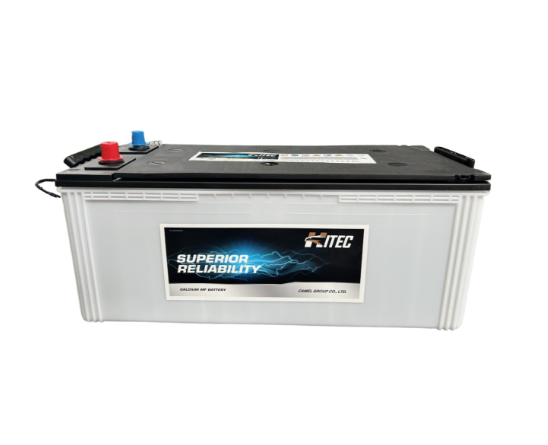Understanding Heavy Duty Vehicle Batteries
Heavy-duty vehicles, such as trucks, buses, construction machinery, and agricultural equipment, rely on powerful batteries to ensure reliable starting, electrical power, and uninterrupted operation. These batteries are specifically designed to meet the high energy demands and endure the demanding conditions typically encountered in heavy-duty applications. Let's explore the key features and requirements of heavy-duty vehicle batteries.
Understanding Heavy Duty Vehicle Batteries
Heavy-duty vehicle batteries are designed to provide a high burst of electrical power to start the engine and support the vehicle's electrical systems. They differ from regular automotive batteries in their capacity, durability, and ability to withstand harsh conditions. Heavy-duty batteries are built to handle the increased electrical load and provide reliable performance in extreme temperatures and demanding environments.

Key Features and Requirements
High Cold Cranking Amps (CCA)
One of the essential features of a heavy-duty vehicle battery is its high Cold Cranking Amps (CCA) rating. CCA refers to the battery's ability to deliver a significant amount of current to start the engine in cold weather conditions. The higher the CCA rating, the better the battery can handle cold temperature starts.
Reserve Capacity (RC)
Reserve Capacity is another crucial specification to consider when selecting a heavy-duty vehicle battery. It represents the battery's ability to provide a steady electrical supply in case the alternator fails or there is an increased demand on the electrical system. A higher Reserve Capacity ensures that the vehicle can operate essential functions even if the charging system encounters issues.
Durability and Vibration Resistance
Heavy-duty vehicles operate in rugged terrains and experience vibrations from rough roads and heavy machinery. The battery must be built to withstand these harsh conditions without compromising its performance and lifespan. Look for batteries that are designed with robust construction and have features such as vibration resistance to ensure long-lasting reliability.
Maintenance-Free Design
Maintenance can be challenging and time-consuming, especially for heavy-duty vehicles with multiple batteries. Opting for maintenance-free batteries eliminates the need for regular checks and water refills, saving time and effort. Maintenance-free batteries are sealed and require minimal attention while providing consistent power.
Deep Cycle Capability
In some heavy-duty applications, batteries may need to power additional electrical loads for extended periods without the engine running. Deep cycle capability allows the battery to discharge and recharge efficiently, ensuring reliable power for auxiliary equipment and onboard systems.
Factors to Consider When Choosing a Heavy Duty Vehicle Battery
When selecting a heavy-duty vehicle battery, consider the following factors to ensure compatibility and optimal performance:
Vehicle Type and Application
Different heavy-duty vehicles have varying power requirements based on their size, engine type, and the electrical load they need to support. Consider the specific needs of your vehicle and choose a battery that is suitable for its type and intended application.
Power Requirements
Evaluate the electrical power demands of your vehicle, including the starting power required and the additional loads that need to be supported. Consult the vehicle manufacturer's specifications or seek professional advice to determine the appropriate battery capacity and CCA rating.
Battery Size and Fitment
Ensure that the battery you choose fits the available space in your vehicle's battery compartment. Consider the dimensions and terminal configuration to ensure proper fitment and connection.
Brand and Quality
Choose a reputable brand known for manufacturing high-quality heavy-duty vehicle batteries. Quality batteries are built to withstand the demanding conditions of heavy-duty applications and provide reliable power for an extended period.
Maintenance and Warranty
Consider the maintenance requirements and warranty terms offered by the battery manufacturer. Opting for a maintenance-free battery with a solid warranty can save time and provide peace of mind.
评论
发表评论